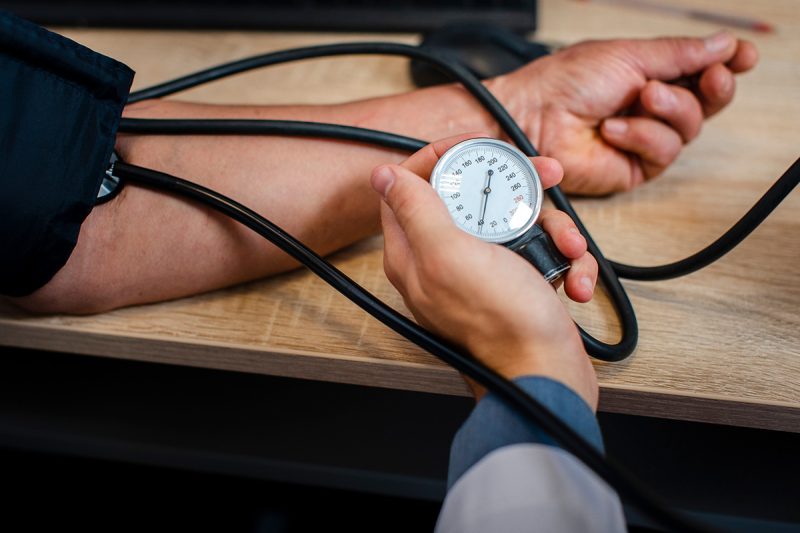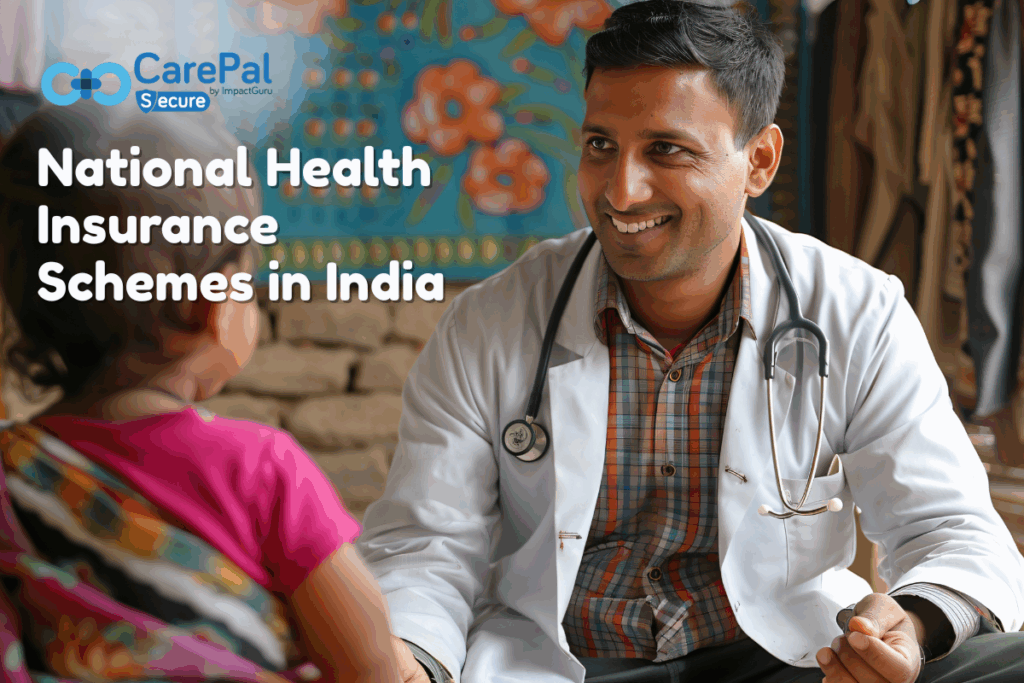Managing hypertension for a
Healthier life

Quick quiz: What is the primary trigger for the development of serious issues in your heart, brain, and kidneys?
Answer: Hypertension also commonly known as High Blood Pressure. It hardens the arteries in your heart, thus increasing the risk of heart problems. It greatly increases the risk of strokes in brain and damages the kidneys by hardening the arteries that carry blood to and from them. And what makes high blood pressure even more dangerous is that a lot of times there are no outwards symptoms to indicate anything is wrong. This is why hypertension is often called the silent killer. Managing Hypertension should therefore be one of the topmost health priorities.
How to reduce your Blood Pressure (BP)? First let’s understand what it is
Blood pressure is the force with which blood pushes against the walls of your arteries. The force exerted when the blood is pumped out is systolic pressure (higher reading) while the force that blood exerts coming back into heart is diastolic pressure (lower reading). Ideal blood pressure range is 130 (systolic)/80 (diastolic). Anything above this range requires you to actively work on managing hypertension.
How to control high BP?
The issue of how to manage hypertension is directly related to managing the risk factors that science has conclusively established are related to high blood pressure. Blood pressure has many factors like genetics, ageing, which you can’t control, but there are many factors which you can. The most important steps you can take to reduce your risk of blood pressure are:
Watch what you eat:
First and foremost, the step that you need to commit to managing hypertension is to control your diet. High Salt, eating processed foods and lack of fibre in your diet are key gaps you need to address. Eating home cooked food, reducing salt intake gradually and incorporating vegetables and including cucumber, radish, carrots etc in your diet will go a long way. Here are 5 Indian foods which help lower blood pressure that are easily available in your market.
Reducing Alcohol and give up cigarettes:
Smoking clogs up your arteries, not only increasing your blood pressure but also the risk of cancer. Alcohol has the same effect, though with less intensity. Stopping cigarettes and reducing alcohol are the first lifestyle changes you need to make if you are thinking about how to reduce your blood pressure.
Active Lifestyle:
It is often said that an active lifestyle and working out is good for controlling high blood pressure. Exercise is a great for managing hypertension strengthens heart, improves the blood circulation, reduces inflammation and helps manage weight. Often people spend a lot of time debating which exercise is best for reducing hypertension. Good news is that all exercise, whether it be walking, jogging, weight training, HIIT etc are helpful in managing hypertension.
Watch your weight but focus on the waist:
You could be eating right and having an active lifestyle and yet be obese. Obesity for Indians should be measured not by popular Body Mass Index (BMI) but Waist to Height ratio. The abdominal fat that collects around the waist is one of the high-risk factors for high blood pressure. Anything over 0.5 is overweight and above 0.6 is obese. Good diet, exercise and right habits will eventually get your waist size in good range.
Hypertension stems from tension:
A wit once remarked “stress is like a rocking chair. It gives you something to do but gets you nowhere!” When you are stressed, your body releases adrenaline and the heart starts to beat faster in the classic “fight or flight” syndrome. Stress is one of the key risk factors for high blood pressure, and any efforts at managing hypertension have to start with managing stress. Exercise is one of the best stress busters. An hour in gym cures stress that no amount of mindless eating or drinking will. The other stress buster is socialising with your friends and family. The reason socialising is so effective in managing hypertension is that when we are around friends and family, our body feels secure and releases happiness hormones and reduces stress hormones.
Monitor Blood Pressure regularly:
It is a common misperception among Indians that blood pressure is a disease that impacts people after a certain age. Fact is that blood pressure is now a condition afflicting even people in their twenties. Blame pollution, poor eating habits, bad lifestyle choices or stress but High BP is now increasingly common among people in twenties. As per WHO, around 22 crore people in India are afflicted with hypertension, but only 12% of them are able to keep High BP under control. It is therefore necessary that you regularly monitor and keep track of your blood pressure. The earlier you detect any signs of the problem, the easier it will be for you to control your blood pressure.
We will end this with an example of “blue regions” of the world like Okinawa in Japan, Sardinia in Italy and Ikaria in Greece, where the rate of chronic disease is low and people tend to live very long. It was concluded that a balanced diet, low smoking and drinking rates, a strong social life, and low stress levels are key contributing factors to the good health observed. But that’s what we just covered in the article, isn’t it? Hypertension management is about living a balanced life, handling stress effectively, and forming positive habits. It’s within your reach to live a healthy and fulfilling life. Give it your best shot!
Frequently Asked Questions
Good digestion ensures proper nutrient absorption, strengthens immunity, and boosts energy levels. It also prevents complications like weight gain, hormonal imbalances, and chronic diseases.
Consider the insurer’s financial stability, claims process, coverage terms, and inclusion of services like teleconsultation and diagnostic tests. These factors ensure smooth access to care and timely claim settlements.
Poor digestion can cause nutrient deficiencies, weakening the immune system and leading to fatigue. It’s also linked to weight gain, diabetes, and mental health issues.
Adopt a balanced diet rich in fiber and fermented foods, quit smoking, avoid alcohol, exercise regularly, and manage stress to support healthy digestion.
It offers comprehensive benefits, including hospitalization, diagnostic tests, and teleconsultation, with a reduced waiting period for pre-existing conditions and cashless treatments.
Hi, my name is Om, and I am a developer at Carepal Secure. With a strong passion for technology and innovation, I enjoy creating effective solutions and learning new skills to enhance my expertise. My journey in development has been both challenging and rewarding, allowing me to grow professionally while contributing meaningfully to the projects I work on.












